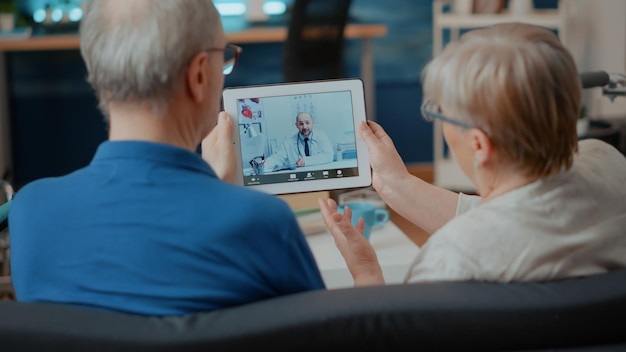
A virtual clinical trial, often known as a remote or decentralized clinical trial, is a method where clinical trial procedures are conducted with the aid of technology. Though it’s a relatively new approach, it hasn’t been widely adopted yet. These trials have the potential to revolutionize clinical research by making it more patient-focused. They harness the power of technology, including advanced applications, gadgets, social networking, robotic process automation, and machine learning. Using telehealth and digital tools, virtual trials offer a secure and efficient way to carry out clinical research, involving virtual patient monitoring, wearable medical devices, and remote data verification. These trials are known for being convenient, cost-effective, and centered around the needs of patients.
How do online clinical trials work? They operate through an online platform that manages all the necessary steps virtually, allowing the trial experience to happen right at home. Patients can schedule their activities to minimize the hassle of going to a clinical center and waiting around. This approach is particularly useful for severe conditions and rare diseases where patients are mostly homebound. Everything required for the trial, including equipment and medication, is sent to the patient’s home. Study doctors and pharmacists provide support through videoconferencing. Telehealth and mobile health apps collect real-time data from patients and send it directly to the main study location.
Contract Research Organizations (CROs) have adapted by becoming providers of virtual trials. Before the COVID-19 pandemic, only a few CROs offered a complete range of virtual trial services. However, the pandemic accelerated this trend, leading many CROs to form partnerships and acquire companies specializing in home healthcare, eClinical software, and remote patient monitoring to enhance their virtual trial capabilities.
There is now a stronger focus on addressing the needs of patients in clinical trials. While patient recruitment has improved, issues with participants dropping out before the study concludes remain. Making trials more patient-centric is crucial for better participant experiences and retention. Patient-focused research involves designing studies with participants’ needs in mind. Including patients in developing the study protocol enhances study quality, outcomes, and relevance, boosting enrollment, adherence, and retention.
What are the benefits of virtual clinical trials? As technology progresses, trials without a physical trial site are gaining popularity. These virtual trials test various therapies, medical devices, and medications, allowing patients to contribute data electronically. They offer several advantages:
– Less work for patients: Virtual trials eliminate the stress and expense of traveling to trial sites, freeing patients from tracking symptoms or visiting trial locations.
– Rapid enrollment of patients: Online platforms and social media make it easier and faster to recruit participants, making trials more accessible to a broader audience.
– Enhanced patient involvement: Virtual trials are more convenient and comfortable, especially for those with mobility challenges, as they allow participation from home.
– Better data collection: Advanced tracking technologies enable life sciences companies to gather extensive data remotely, enhancing the quality and timeliness of information collected.
Despite these benefits, virtual clinical trials face certain challenges. Some studies, requiring complex procedures like biopsies or expensive imaging, are not feasible as virtual trials due to the need for professional involvement. Patient privacy concerns and discomfort with constant monitoring devices are other issues. Conducting trials in less controlled environments may introduce risks such as discrepancies, due to varying levels of medical knowledge and comfort with technology.
In summary, the growing digitization of healthcare, along with telehealth adoption and increased R&D efforts, are fueling the virtual clinical trials market. The market is expected to grow further due to technological advancements and support from collaborations between research organizations, biotechnology firms, pharmaceuticals, and government initiatives. These trials provide participants with access to free treatments and medications that aren’t available otherwise.









